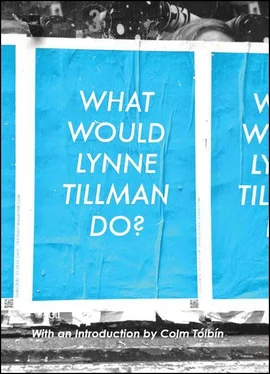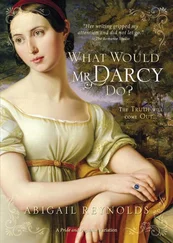Paul usually fretted about the mail’s getting through from Morocco. He often wrote that he was paranoid about it. He would double-check that I’d received something he mailed. Now he asked, “Did you get the postcard I sent about Cast in Doubt ?” This was the morning after the party, or the early evening before it; we were in front of Virgina Carr’s house. I remember it was light out, a late or early sunlight. “No, I didn’t get it,” I said. ( Cast in Doubt was my third novel.) “Oh, too bad,” he said. Then he said something I heard but also didn’t quite hear, his words at the edge of audibility. A slim, handsome Moroccan man pushing his wheelchair — not Mohammed Mrabet, happily — pushed him on, while Paul continued talking. I think he said he liked it, and something else, or I hope he said that, but I didn’t feel I could ask him again, as if that would be craven. Now I’m sorry I didn’t.
The operation was a success. It gave Paul five more years. I still wonder why I flew down to say hello or even goodbye to Paul. In retrospect I find my behavior mysterious. I did feel an emotional or literary attachment to him, a man who was detached and puzzling, but more significant to me as a younger writer, I had read his books, admired them and we had formed some kind of relationship. My greater attachment was to Jane Bowles, and he also represented her to me.
The third and last time I saw Paul was in 1995; he was in New York for a concert of his music at Lincoln Center. He had started out as a composer and begun writing fiction after Jane Bowles’ brilliant, sui generis and only novel, Two Serious Ladies , appeared in 1943. Everyone who thinks about their marriage also ponders how his novel, The Sheltering Sky , especially its very successful publication, affected Jane. Her novel was a succès d’estime; his drew wider acclaim. Jane Bowles never wrote another novel, and some blame him. I don’t. There was nothing simple about either of them together or singly. And no one cause could ever explain her not finishing any writing after 1949.
For the concert — a night I won’t forget, at least I believe I won’t — my date was Charles Henri Ford, another sophisticated, elderly and former American abroad, a poet, artist and filmmaker. I watched Charles and Paul greet each other, Paul in his wheelchair, Charles bending down to talk to him. Both must have been somewhat stunned, I thought, but both were elegant, world-weary men, casual about the moment and unexpected events. “I haven’t seen Paul in fifty years,” Charles told me as we walked to our seats. He said it blithely, without any importance, and I wondered if, some night, I might experience something similar.
Paul Bowles died in 1999, Charles Henri Ford in 2002. Their lives encompassed and contributed to the twentieth century, what some once called The American Century. They also lived long enough to see the end of that.
Dear Poet
Charles Henri Ford
Did the lake overturn
When Narcissus fell in
Become opaque
A mad lake—
Oh poet dear
Please make it clear
And let it recover
The reflected image
Of that foolish lover—
Amazedly
Florine Stettheimer
Charles Henri (né Henry) Ford made his entrance on February 10, 1908, in Hazlehurst, Mississippi, to Gertrude Cato and Charles Lloyd Ford. It was his idea to change the spelling of Henry to Henri. “I was tired of being asked if I was related to Henry Ford,” he says, “and a young girl wrote me on lavender paper and in red ink and made a mistake that I liked so I kept it.”
Ford’s parents, and his father’s brother’s, owned hotels in various small cities in Mississippi and Texas — Ford was born in a hotel that burned down soon after — and his early life was peripatetic. His mother, whom he compares in his diary with Hamlet’s mother, Gertrude, was an artist herself and seems to have been a dramatic, beautiful and compelling character. This primary love led the way to Ford’s two great loves — Djuna Barnes and Pavel (Pavlik) Tchelitchew.
All spoken remarks are Charles Henri Ford’s to the author in two recent conversations. All other quoted material is from Water from a Bucket , unless a source is cited.
Ford met Barnes in New York in 1929, before he left for Paris in 1931, and lived with her in Morocco, where he typed the manuscript of her novel Nightwood . “She couldn’t spell,” he says. His most enduring relationship was with Russian painter Pavlik Tchelitchew. They lived together for 23 years. Ford and Tchelitchew met in Paris, in 1933, at an opening, when Ford was 24 and Tchelitchew, 35. Of the meeting Ford notes in his diary that he wrote Parker Tyler at the time, “I’ve found a genius.” In a powerful way, the diary circles around and is about Pavlik, “his great heart,” and their complicated love and long relationship.
His younger sister, Ruth Ford — the diary’s “Sister”—was a well-known actor. She debuted in Orson Welles’ Mercury Theater production of The Shoemaker’s Holiday in 1938; performed in plays by Tennessee Williams; had a lead in Jean-Paul Sartre’s No Exit (translated by Paul Bowles); and received a nomination from the London Drama Critics, in 1957, for her performance as Temple Drake in Requiem for a Nun , which she had adapted into a play with William Faulkner. Ruth Ford was married to Hollywood actor Zachary Scott, who died in 1965, and lives in the Dakota, four floors below her older brother.
I loved the Blues before I loved the Poem. Somehow the two loves were from the same source, so it was natural I called my poetry review Blues.
Precocious and ambitious, the young poet launched Blues, The Magazine of New Rhythms, in 1929. William Carlos Williams and Eugene Jolas were two of its contributing editors and Kathleen Tankersley Young its associate editor. For nine issues, Ford solicited and published writing from Ezra Pound, Gertrude Stein, Kay Boyle, Harry Crosby, James Farrell, H.D., Kenneth Rexroth, Mark van Doren, Louis Zukofsky, Edouard Roditi, Erskine Caldwell. He was the first to publish Paul Bowles.
From Mississippi, Ford moved to New York, to write poetry and lead la vie bohème in Greenwich Village. Ford had published Parker Tyler, the poet and future film critic and writer, in Blues and was corresponding with him. They met in person in New York—“I could hardly see his face, he had so much makeup on,” Ford says — and soon collaborated on writing The Young and Evil . Called by some the first gay novel, published in 1933, banned in the United States and England, it is — like Ford himself — unapologetic, unashamed, poetic, candid and determinedly free of conventions.
It’s not doing the things one wants to do — even if considered a vice, like opium-taking — that makes one age, but doing things one doesn’t want to do .
A kind of Surrealist free verse, the uninhibited novel was influenced, in part, by Ford’s mentor Gertrude Stein, who took him up when he was first in Paris. When Ford fell in love with Tchelitchew, Stein found less reason to see him; she and Tchelitchew had had one of those famous, furious partings of the way. But in The Autobiography of Alice B. Toklas , Stein wrote of Ford: “He is also honest which is also a pleasure.”
Along with The Young and Evil , Ford is perhaps best known for View , the international art magazine he edited in New York, from 1940 to 1947. Europeans Marcel Duchamp, André Breton, Max Ernst — forced into exile during World War II — Americans Maya Deren, Meyer Schapiro, Joseph Cornell, Florine Stettheimer, Man Ray, Paul Bowles and many more found a home in View ’s pages and on its covers. Not coincidentally, Ford begins his diary a year after he stops View and ends it shortly after the death of Tchelitchew in 1957.
Читать дальше












